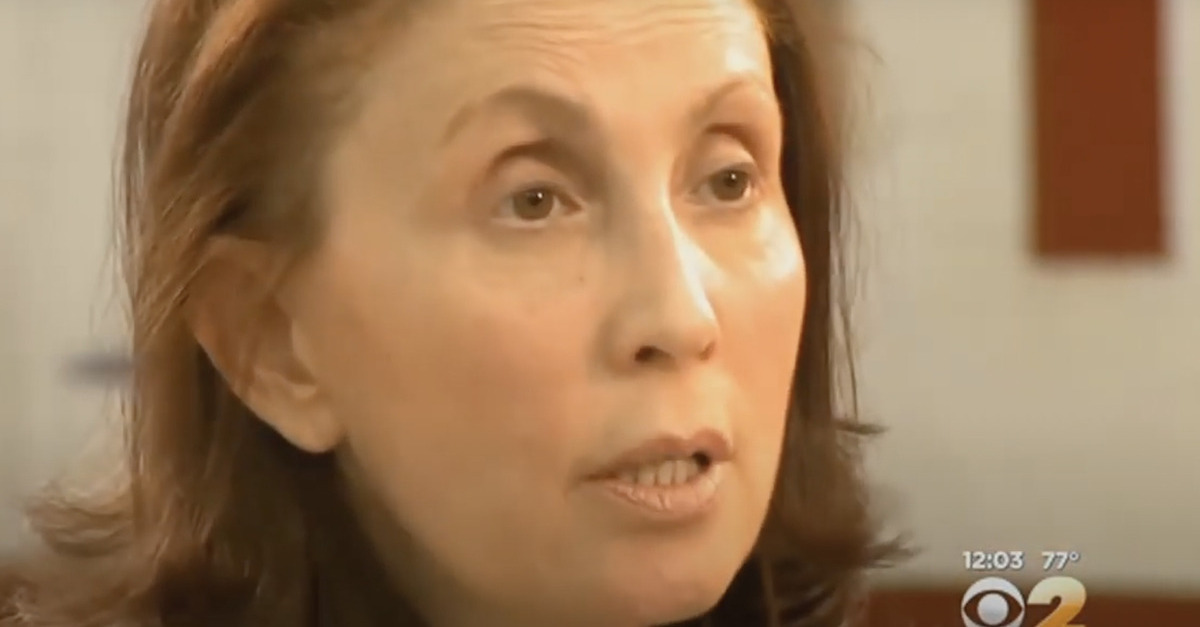
Gigi Jordan
Supreme Court Justice Sonia Sotomayor reversed her own order Thursday night and revoked bail for Gigi Jordan, the pharma-millionaire convicted of killing her 8-year-old autistic son in a Manhattan hotel room.
In 2014, Jordan was convicted of first-degree manslaughter for killing her son Jude Mirra in 2010 by administering a fatal does of prescription medications. Mirra, a non-verbal child with autism, had been 8 years old. Jordan admitted she intentionally killed the child in an effort to save him from what she believed was ongoing abuse. Mirra also said that she intended to kill herself on the night Mirra died.
The case received significant media attention in part because Jordan’s suspicions of abuse had been the result of messages she believed her son typed out on a facilitated communication device. Jordan says she reacted with a “mercy killing” of her young son.
A jury accepted Jordan’s claim of extreme emotional disturbance and convicted her of manslaughter rather than murder, as Jordan had originally been charged. Following the conviction, Jordan appealed citing procedural irregularities that occurred during the trial.
Specifically, the presiding judge closed the courtroom for an off-the-record discussion at the request of a prosecutor and over the objection of Jordan’s defense team. The prosecutor used the discussion to raise concerns about a media coverage of the trial and asked the judge to remind the jury to avoid looking at any internet content related to the case.
The judge did so, and also warned Jordan herself about improper statements she made online about the case. Finally, the judge sealed — and shortly thereafter, unsealed — the record of the discussion.
Jordan then appealed and argued that the procedural glitch had deprived her of her constitutional right to speedy and public trial.
At the lower state court levels, Jordan’s appeal was unsuccessful, as the closed proceeding was found not to have affected the substance of the case before the jury. However, the U.S. District Court for the Southern District of New York disagreed, granted federal habeas relief to Jordan, and ordered that Jordan be released from state custody on bail pending the conclusion of the appeal.
The U.S. Court of Appeals for the 2nd Circuit reversed, and Jordan filed an emergency appeal with the Supreme Court.
On Dec. 20, 2022, Justice Sotomayor (the presiding justice for the Second Circuit) granted bail on an emergency basis to Jordan, pending further responses by the parties.
New York District Attorney Alvin Bragg then filed a brief that argued there was “[n]o compelling reason” for granting Jordan relief. Bragg called Jordan’s chances for success on appeal “highly unlikely,” and said there was a “vast gulf” between the kind of cases the Supreme Court has ruled that a defendant had been prejudicially denied an open proceeding and “the idiosyncratic and harmless closure” at play at Jordan’s trial.
In a five-line order filed on Thursday evening, Justice Sotomayor sided with New York and vacated the Dec. 20 order. As a result, Jordan will remain in custody as her appeal progresses.
[screengrab via YouTube/CBS]